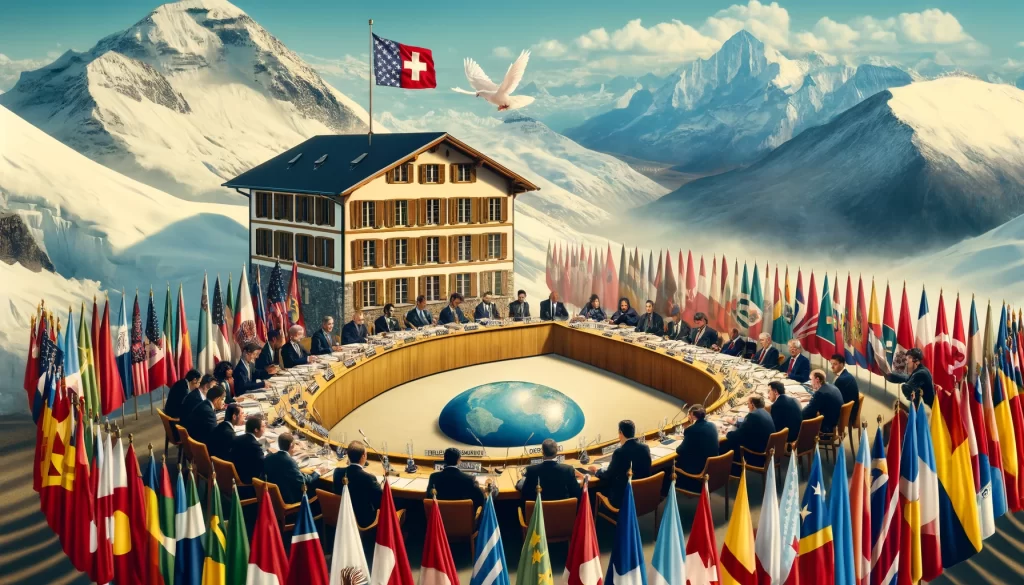
The Burgenstock Peace Summit, recently held in Switzerland, has generated intense discussions about the neutrality position of Latin American countries. This event, which brought together world leaders to discuss issues of global peace and security, brought to light a series of dilemmas for the nations of Latin America, who have historically adopted neutral stances in international conflicts.
Brazil, the largest economy in the region, has been a leading advocate of neutrality in global issues. The Brazilian president highlighted, in his summit speech, the importance of a foreign policy that prioritizes dialogue and mediation, instead of automatic alignments with great powers. However, the growing global polarization, intensified by conflicts such as Ukraine, calls this approach into question. According to a newspaper article Or Balloon, pressure for Brazil and other Latin American countries to take more defined positions is increasing, mainly by traditional allies such as the United States and the European Union.
To Argentina, the debate on neutrality also intensified. The Argentine government, which traditionally maintains a non-intervention stance, now faces increasing pressure both internally and externally. Argentine political analysts, as mentioned in an article by The nation, point out that the Burgenstock Summit could be a turning point for the country's foreign policy, forcing a reassessment of strategic alliances in an increasingly divided world.
Or Mexico, in its turn, has tried to balance its neutral stance with economic and political interests. The Mexican press, including the The universal, highlighted that the country's participation in the summit was marked by a speech that reaffirmed its commitment to peace and the peaceful resolution of conflicts. However, the pressure to adopt more assertive positions is a reality that the Mexican government cannot ignore.
To better understand the situation, It is crucial to consider the perspective of other global regions. In China, for example, to state press, like the Global Times, emphasizes that the neutrality of Latin American countries is a sensible strategy in a multipolar world. Chinese media suggest that Latin America must resist external pressure and maintain its autonomy in international decisions. Similarly, in India, the editorials of The Times of India argue that neutrality can be a way to preserve regional stability in the face of global crises.
Not African context, South Africa has been an example of strategic neutrality. The newspaper Mail & Guardian reported that the South African stance at the Burgenstock Summit was aligned with the search for a peaceful and mediated solution to conflicts, echoing the sentiment of many Latin American countries. South African foreign policy, as well as many Latin American countries, emphasizes the importance of diplomacy and mediation.
The Burgenstock Dome, therefore, not only tensions the neutral position of Latin American countries, but also challenges them to reevaluate their strategies in an increasingly complex international scenario. Pressure to abandon neutrality in favor of clearer, more defined alliances could increase, But the response of the region's nations will depend on a delicate balance between their diplomatic traditions and new geopolitical realities..
Neutrality, in an increasingly polarized world, becomes a position of both resistance and vulnerability. Latin American countries must carefully navigate these waters, seeking to maintain their autonomy while responding to the demands of an ever-changing global landscape. The Burgenstock Dome, therefore, serves as a catalyst for a deeper debate on the role of Latin America in the contemporary world.
